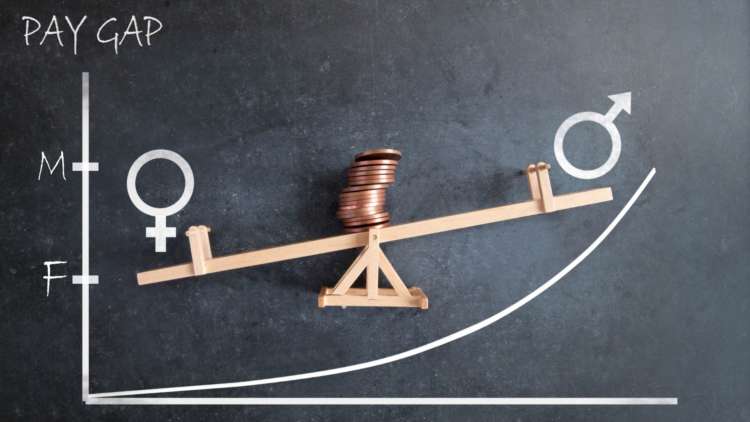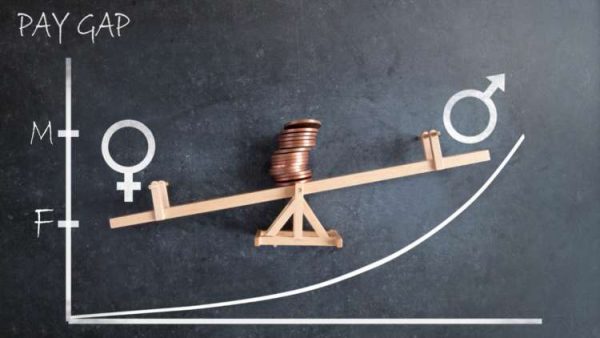Nigeria has long battled to draw more of its people into its financial system. For many years, tens of millions of people remained financially excluded, and couldn’t enjoy the benefits that come with having a bank account or saving via some other financial institution.
Read more about FinTech
This picture is changing. Of the 106 million adults who live in Nigeria, about 45%– or 47 million individuals –are banked. That’s up from the 40% that obtained in 2018. A further 6 million use other formal financial services. These numbers indicate one thing: more Nigerians are joining the category of the financially included.
However, women aren’t achieving nearly as much on these fronts as men. This has been the case for years, perhaps even decades. It’s a problem that has caught the attention of economic analysts, the government, and members of the public.
What the Financial Inclusion Gender Gap Looks Like
This issue is captured by the EFInA’s report on financial inclusion in Nigeria for the year 2020. It reveals that while 51% of males have access to formal banking services, only 39% of females are banked.
Women are also more likely to be financially excluded than men. The report EFInA report notes that about 32% of males do not transact with formal or informal financial institutions. For women, it’s 40%.
Interestingly, women (15%) are more engaged with informal financial services than men (12%). These services include thrift societies, village administration contributions, and age-grade associations. This suggests a willingness on the part of women to save; but for some reason, this willingness isn’t being reflected in the numbers for formal financial services.
The gap is most severe in rural areas. In its 2018 survey, the EFInA points out that only 24% of rural women had a formal account, compared to 54% of rural men.
Things also look downbeat for women when it comes to financial products besides savings and bank accounts. About 26.1% of men receive remittances through bank services; for women, it’s 18.6%. And men are more than twice as likely as women to have an insurance product.
Why The Gap Exists
Some of the reasons for financial exclusion among women—low or no income, a lack of education, and a mistrust of financial service providers –also contribute to financial exclusion among men. However, these factors tend to be more pronounced among women.
Income and education are particularly crucial. Back in 2002, the UNDP’s Human Development Report estimated that women’s average annual incomes in Nigeria were two times lower than those of their male counterparts. Also, women account for more than 70% of Nigerians living in extreme poverty.
Sign up to the Connect Nigeria daily newsletter
As for education, the enrollment rate for primary schools in Nigeria is 56% for girls and 61% for boys. The education completion rate widens in secondary school to about 14%. Given the strong relationship between the level of education and the use of financial services, it’s easy to see how lower education completion rates drive lower patronage of formal financial services by women.
In many local cultures, males are in charge of household finances. They tend to be the ones to make financial decisions for their families—including their wives. This, as well as other customary rules, may limit the ability of women to engage with formal financial services.
But the higher involvement rates of women with informal financial setups (referred to earlier), as well as the prudence shown by women who have access to more financial service options, indicate that they’re just as capable as men with respect to owning accounts and saving with formal financial institutions.
Can FinTech Help Close The Financial Inclusion Gender Gap?
There’s an ongoing push by both public and private finance concerns to close the financial inclusion gender gap. The early signs are that they’re tackling a surmountable problem. But more hands need to be on deck.
Many Nigerian FinTechs have made it their goal to solve Nigeria’s financial inclusion problem. Some of them, especially those that employ the agent-supported model, are making progress in this direction. By bringing basic banking services closer to people in suburban and rural areas, they could help millions of women access financial services.
Other models could work. For example, connecting rural women with the funding they need to run and sustain their businesses. Some startups have taken this approach; they’ve pooled funding from people who have the cash to spare (investors) and channelled them to farmers who need financing to scale. Investors get their money back after a while, plus interest.
One startup that’s doing this is HerVest. It provides a digital platform for women to save on, and also invest in the thousands of women farmers in its network. This benefits all parties involved: the women who use the HerVest app can save on it and earn interest on their investment, and the women farmers who receive funding can grow their business.
Another startup, Bankly, is utilizing the traditional thrift collection system, which tends to be favoured by women. It’s assembled several agents who organize thrift societies across the country. The startup says it’s moving to digitize these setups, a step en route to creating a digital banking system.
FinTech is just one of several prongs required to take down the mammoth that is the financial exclusion of women in Nigeria. But it’s an important part of the process. Hopefully, the various solutions meld into a coherent whole that brings millions of women into the country’s financial system.
Featured Image Source: Global Banking and Financial Review
Got a suggestion? Contact us: [email protected]


